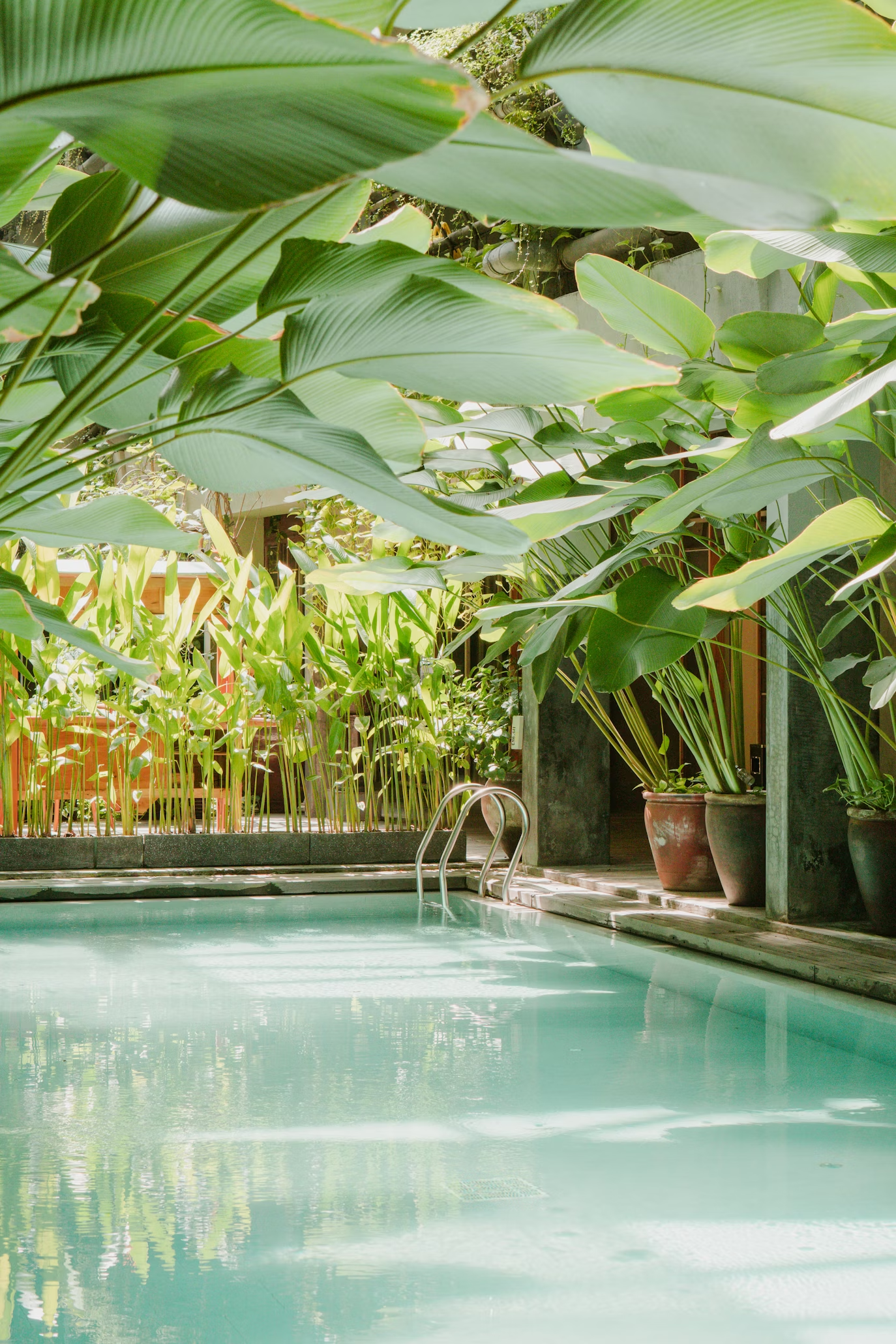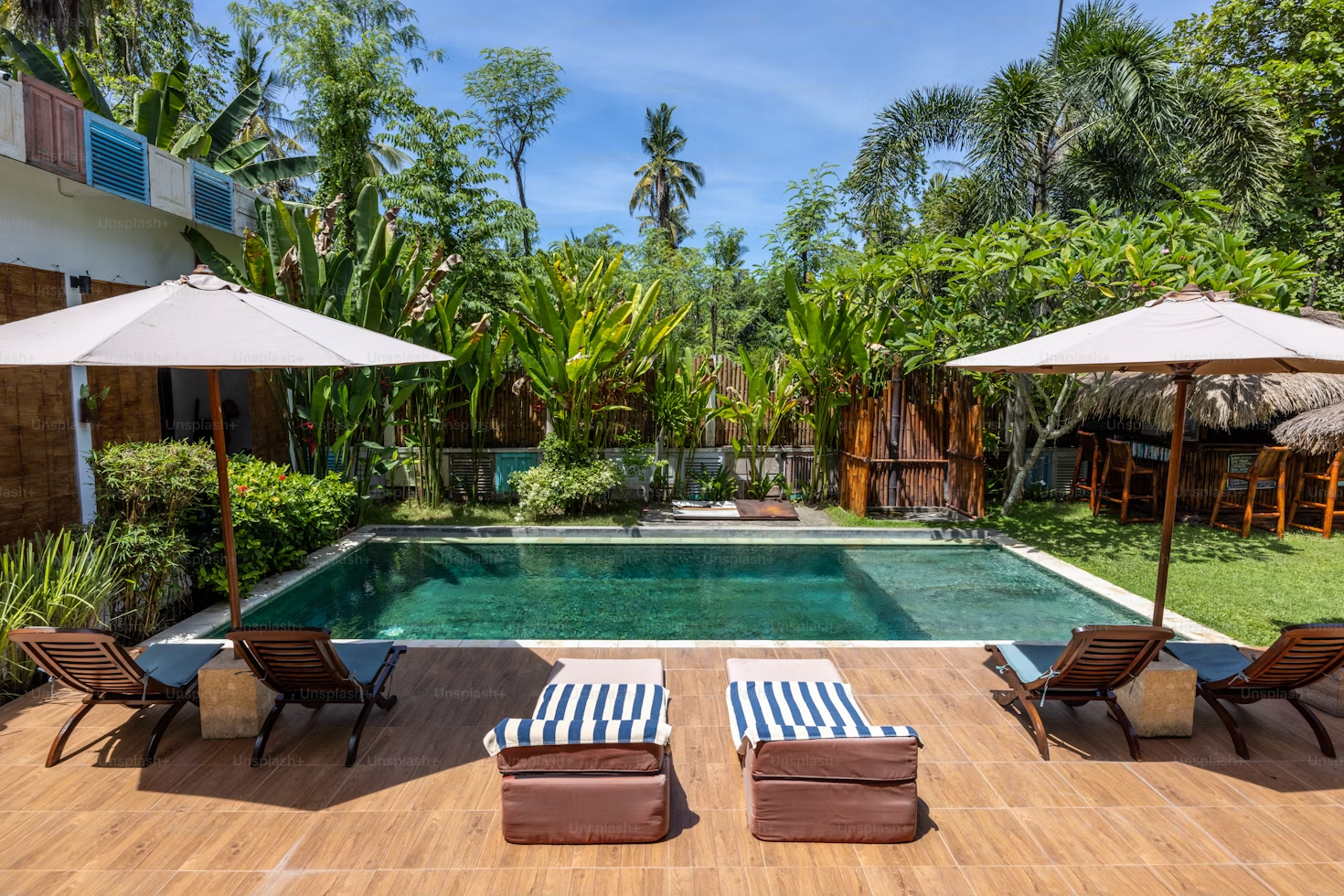January 10, 2025
Making the Wise Choice for In Ground Pools Bridgeland, TX
Choosing the optimal system for your in ground pools Bridgeland, TX, is crucial in creating your ideal outdoor hideaway. Whether you’re constructing a brand-new pool or considering renovating or upgrading an old one, choosing between a chlorine and saltwater system may be daunting.
Both have benefits, but there are also drawbacks, such as differences in expenses, comfort, and upkeep. Having so many alternatives might make you feel overwhelmed. Compare the main features of in ground pools to learn how to make the most of your outdoor space.
j

Create the perfect backyard retreat with elegant in ground pools.
Saltwater Pool Pros
Saltwater pools have gained popularity recently due to their smooth, soft water and lower maintenance needs. Here are some reasons why homeowners in Bridgeland, TX, may consider a saltwater pool:
- Softer Water: The water in saltwater pools tends to be gentler on the skin and eyes, making swimming more comfortable. This can be a major benefit for families with young children or those with sensitive skin.
- Lower Chlorine Levels: Saltwater pools still use chlorine but in much smaller amounts than traditional chlorine pools. A salt chlorinator converts the salt in the water into chlorine, which means less chemical exposure and fewer harsh chlorine odors.
- Less Frequent Maintenance: With a saltwater pool, you won’t have to add chlorine as frequently, reducing the time spent maintaining the pool. The salt chlorinator keeps the water more consistent, easing the burden of monitoring chemicals.
Saltwater Pool Cons
- Initial Installation Costs: The cost of installing a saltwater pool system tends to be higher than that of a traditional chlorine pool. This is because the saltwater system requires a salt chlorinator, which adds to the initial expense.
- Salt Cell Maintenance: The salt cell converts salt into chlorine and requires occasional maintenance and replacement. Over time, the salt cell may need to be replaced, which increases the overall cost of owning a saltwater pool.
- Corrosion: Salt can be corrosive to pool equipment and accessories. If not properly maintained, saltwater pools can damage pool liners, heaters, and other metal components over time.
Chlorine Pool Pros
Chlorine pools are the most commonly used pool system in the world. They have been around for decades and are a popular choice among homeowners. Here’s why:
- Lower Upfront Costs: Chlorine pools are typically less expensive to install than saltwater pools. A salt chlorinator or special equipment is not needed, keeping the initial installation costs down.
- Easily Available Chemicals: Chlorine tablets and liquid chlorine are widely available at pool supply stores, making it easy and inexpensive to maintain the pool’s chemical balance.
- Effective Sanitization: Chlorine kills bacteria and algae, keeping the pool clean and safe for swimming. It’s a tried-and-true sanitation method used by pool owners for many years.
Chlorine Pool Cons
- Frequent Chemical Additions: Chlorine pools require regular monitoring and chemical additions to keep the water balanced. You must check the chlorine levels regularly and add more chemicals when necessary.
- Harsh on Skin and Eyes: While chlorine effectively sanitizes pool water, it can be harsh on the skin and eyes, leading to irritation for some swimmers. Prolonged exposure to high levels of chlorine can also cause dryness or discomfort.
- Strong Chemical Odor: Chlorine pools often have a distinct, sometimes overpowering chemical odor. While this smell means your pool is being sanitized, it can be unpleasant for some swimmers.
Maintenance Requirements: Saltwater vs. Chlorine Pools

Make every day a pool day with expertly designed in ground pools.
The type of pool system determines how much work you put into pool maintenance. Chemical balancing is less often for Bridgeland, TX saltwater in-ground pools. You don’t need to add chlorine as frequently since the salt chlorinator system keeps a steady level. However, the salt cell must be cleaned and replenished periodically.
Chlorine pools require extra manual care. They must be regularly checked for chlorine levels, corrected for pH and alkalinity, and filled with chlorine pills or liquid. Despite taking more time and effort, chlorinated pools are easier and cheaper.
